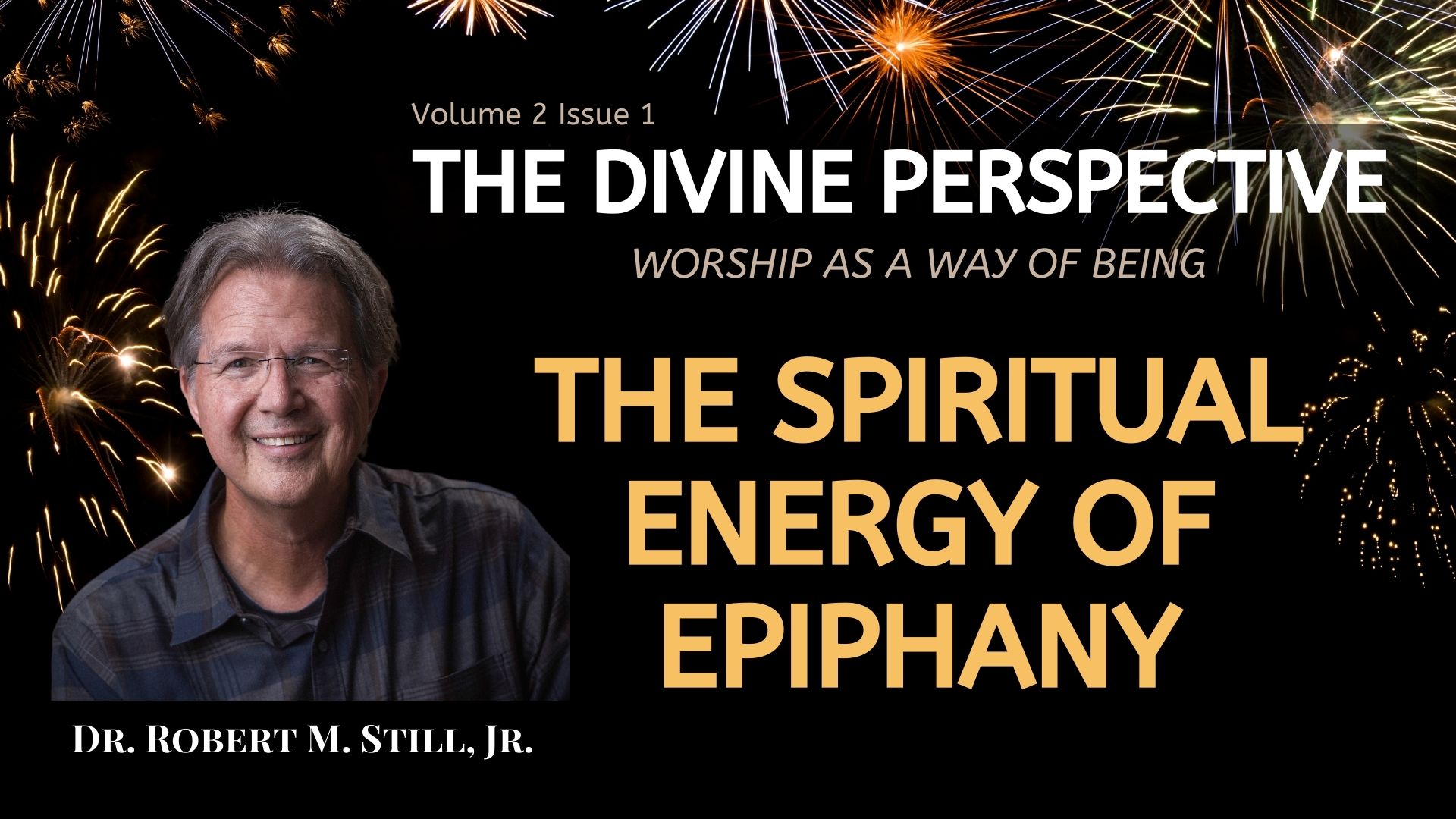The Spiritual Energy of Epiphany

Happy Epiphany Day . . . and beyond!
The season of Epiphany offers an opportunity to embody, for the next 40 days, the spiritual energy of renewal and recommitment.
Although New Year’s Day has passed, we can progress in our spiritual journey with the invigorating energy of making a fresh start by paying attention to Epiphany’s scriptural narratives and lessons.
SPIRITUAL ENERGY
Spiritual energy is a grace gift of God that transforms our human perspective. When we gain the perspective of heaven—The Divine Perspective—it shifts and empowers our mental and emotional state of being. Thus, as new creations, are we re-created in Christ Jesus to do good works ( (2 Cor 5:17, Eph 2:10).
When our understanding is enlightened, it heightens neurological functions such as the release of dopamine and serotonin that elevate our emotional state of being or mood, thus resulting in greater happiness and motivation. Of course, several methods can alter an individual’s brain function and mood, ultimately enhancing their motivation to complete specific tasks or achieve goals. However, I am referring to a more profound approach that goes beyond what can be achieved by natural means.
I’m talking about aligning your spiritual essence, which is the deepest part of your soul, with the truth of God’s ways and abiding in His presence regularly and practically. Practicing the presence of God is what will give you resilient faith, hope, and love. Increased faith, hope, and love are the fruits of God’s Spirit and his gift of grace to you right now when you need them the most.
ABOUT EPIPHANY
Epiphany remembers Christ’s beginnings and emphasizes the revelation of God’s incarnation. Three essential Christian mysteries come together: the star guiding the Magi to the cradle, the water-turned-wine miracle, and Jesus’ baptism in the Jordan. These narratives reveal early manifestations of Jesus as the Messiah king, beloved Son of God, and producer of miraculous signs.
Light is the overarching theme. Epiphany compliments Christmastide as “a season that puts a glow on the soul.”[1] It is a time of “splendor and light” that completes the Christian year calendar’s “Cycle of Light.”[2]
Epiphany comes from the Greek word epipháneia, meaning “conspicuous appearing, manifestation, glorious display.”[3]
The liturgical observance of Epiphany traditionally occurs every January 6th. By contrast, other significant dates in the Christian year—Advent, Lent, Easter, and Pentecost—change yearly. Theophany is another word for divine manifestation. On January 6th, the Eastern Church commemorates “The Feast of the Holy Theophany” to mark the appearance of the Triune God in the natural world.[4]
The tone of Epiphany is joyful. The manifestation of Christ is honored by “gifts from all nations and peoples.”[5] Adoration and celebration is the appropriate response of worship because this theophany marks the salvation of “every race, every tribe, every tongue” (Rev 7:9). All the world can now rejoice.
THEMES OF NEW BEGINNINGS
Epiphany is also about new beginnings, and because it tells of the beginnings of Jesus, it can be about new beginnings for us. Epiphany spirituality offers an opportunity for a fresh demarcation from old paradigms, a chance to see that the “world is reborn”[6] with a new hope that redemption and renewal is available for everyone.
In this series we will look at the biblical themes for The Feast of Epiphany which include three primary scriptures: The Visit of the Magi (Matthew 2:1-12), The Baptism of Jesus (Matthew 3:13-17, Mark 1:9-11, Luke 2:21-22), and The Miracle at Cana, where Jesus Changes Water into Wine (John 2:1-11).
In the next article, we will look at spiritual lessons from the story of the Magi that we can apply today. This series builds upon my research at the Robert E. Webber Institute for Worship Studies. You can read my entire 38 page academic paper “Epiphany Spirituality: A Light Of Revelation” here: https://robstill.academia.edu/research
STAY CONNECTED: Sign up for The Divine Perspective, my newsletter that synergizes spirituality, theology, creativity, and personal development from an artist and academic who envisions worship as a way of being.
Thank you for subscribing!
Have a great day!
1 Joan Chittister, The Liturgical Year: The Spiraling Adventure of the Spiritual Life, (Thomas Nelson 2010), 95.
2 Hickman, Saliers, Stookey, and White, The New Handbook of the Christian Year, (Nashville: Abingdon Press, 1992), 84.
Robert Webber, Ancient-Future Time: Forming Spirituality through the Christian Year, (Grand Rapids: Baker Publishing Group, 2006), 35.
3 "G2015 - epiphaneia - Strong's Greek Lexicon (KJV),” Blue Letter Bible, accessed Sep 10, 2020. https://www.blueletterbible.org//lang/lexicon/lexicon.cfm?St...
4 “Epiphany of our Lord,” Greek Orthodox Archdiocese of America, accessed 10-4-2020, https://www.goarch.org/epiphany.
5 Hickman, et al, New Handbook of the Christian Year, 89.
6 Martin Connell, Eternity Today: On the Liturgical Year, Volume I & II, (New York, New York: Continuum International Publishing, 2006), 210.
